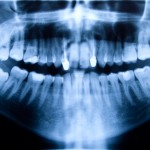
The surgical removal of third molar teeth is a very commonly performed procedure and numerous trials have been conducted to test the efficacy of antibiotics in the prevention of post operative infection or dry socket. Various antibiotics, combinations of antibiotics, pre- and post-operative administration and dosage regimes have been investigated and their routine use in the face of rising antibiotic resistance is questioned.
The aim of this review was to determine whether antibiotics compared to placebo can prevent infection or dry socket after third molar surgery and to rank the best types of treatment.
Methods
A review protocol was registered on the PROSPERO database. Searches were conducted in the Cochrane Central Registry of Controlled Trials (CENTRAL), Medline/PubMed, the Virtual Health Library, Google Scholar and ClinicalTrials.gov databases with no language or date restrictions. Randomised controlled trials (RCTs) comparing use of preventive oral antibiotics for patients undergoing third molar surgery were considered. The main outcomes were postoperative infection or dry socket (alveolar osteitis). Three reviewers independently selected studies with two reviewers independently extracting data and assessing risk of bias using the Cochrane risk of bias tool (RoB 2). The GRADE (Grading of Recommendations Assessment, Development, and Evaluation) approach was used to assess certainty of evidence.
Results
- Of the 58 RCTs identified 34 studies contributed to the network meta-analysis (NMA).
- Of the RCTs contributing to the NMA 11 studies were considered to be at low risk of bias, 12 were at high risk of bias with 11 presenting some concerns.
- The NMA included 3772 patients with 361 infections (209 in placebo group, 152 in the antibiotic group).
- 5 antibiotics were compared with placebo and the relative risk of infection is shown in the table below. Significant reductions in infection were seen with Metronidazole and Amoxicillin.
| Antibiotic | No. of studies | Relative risk (95%CI) |
| Metronidazole | 7 | 0.51 (0.31 to 0.84) |
| Amoxicillin | 21 | 0.56 (0.38 to 0.84) |
| Clindamycin | 4 | 0.57 (0.26 to 1.23) |
| Amoxicillin and Clavulanate | 8 | 0.62 (0.36 to 1.07) |
| Amoxicillin and Metronidazole | 1 | 1.00 (0.31 to 3.25) |
- Subgroup analyses for pre- versus post-operative, and dosage schedules were also presented.
Conclusions
The authors concluded: –
This systematic review showed that the best way to prevent infection or dry socket is by giving postoperative amoxicillin 750 mg or amoxicillin plus clavulanate 500 mg + 125 mg every 8 hours for over 3 days, with moderate quality of evidence. However, taking into account the low infection rate after third molar surgery, the possibility of antibiotic resistance (mainly amoxicillin), and the side effects that antibiotics can cause, the routine use of antibiotics after third molar surgery must be discouraged.
Comments
The review authors pre-registered their protocol and searched a good range of databases identifying 58 RCTs although only 34 were included in the meta-analyses. The overall analyses showed that only metronidazole and amoxicillin resulted in significant reduction in infection with the NMA indicating metronidazole was best at preventing infection. However, the evidence was of low certainty. This is a similar finding to a recent Cochrane review (Dental Elf – 3rd Mar 2021) which included 23RCTs and found,
low-certainty evidence that prophylactic antibiotics may reduce the risk of infection and dry socket following third molar extraction when compared to placebo, and very low-certainty evidence of no increase in the risk of adverse effects.
The review authors also undertook a number of sub-analyses on antibiotic type, dosages and pre-, post-operative delivery but while interesting the number of included studies is very small, and the overall quality of the studies means that these should be interpreted very cautiously. Increasing concerns regarding antibiotic resistance and the low rate of post-operative infection or dry socket means that clinicians should evaluate if and when to prescribe prophylactic antibiotic therapy before surgical removal of third molars on an assessment of an individual patients level of risk.
Links
Primary Paper
Falci SGM, Galvão EL, de Souza GM, Fernandes IA, Souza MRF, Al-Moraissi EA. Do antibiotics prevent infection after third molar surgery? A network meta-analysis. Int J Oral Maxillofac Surg. 2022 May 5:S0901-5027(22)00142-4. doi: 10.1016/j.ijom.2022.04.001. Epub ahead of print. PMID: 35527115.
Other references
Dental Elf – 3rd Mar 2021
Dental Elf – 12th Aug 2016
